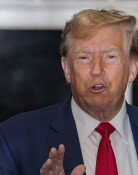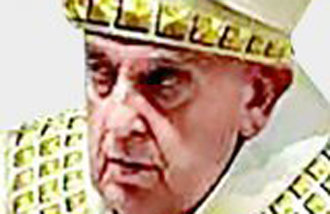The Washington Post Discloses the Behind Story of the CIA Afghanistan Operation in Bob Woodward`s New Book
The Washington Post Discloses the Behind Story of the CIA Afghanistan Operation in Bob Woodward`s New Book
Posted November. 18, 2002 22:50,
Mr. Gary (59), who had worked for the CIA Operations Division for 32 years, was facing a retirement in few weeks by the time the 9.11 Terror was happened. Eight days later, the person who was in charge of the CIA Anti-Terrorism Center, Copper Black, called him. Mr. Black ordered him to organize a strike team and "bring Bin Laden`s head in a box."
There was no other man to handle this assignment than Mr. Gary, who started as a secret agent in Teheran and Islamabad in the 70`s, experienced as the local director of Dubai and Kabul, and worked as the deputy director in charge of Middle East and South Asia. He could speak the Pashto and Dari, which were the two major languages of Afghanistan.
He was crossing the Panj-shir, a steep valley in northeast Afghanistan, at 12:30PM on September 26, 2001, riding the CIA owned and Russian made Mi 17 helicopter. It was a dangerous situation that he could be shooting down by the Taliban`s or Al Qaida`s Stinger missile. In the helicopter, 9 secret agents belonged to the code name 'Jawbreaker' team was there. Between his legs, there was a metal bag with 30,000 100-dollar bills that were not sequenced in serial numbers.
The Anti-Taliban Northern Allied Army greeted them, who were landed 110km north from Kabul. That night, he gave 500,000 dollars to the intelligence and security director of the Northern Alliance and said, "You can use this any way you want to reinforce the army." Mr. Gary also gave a million dollars to the Commander of the Northern Allied Army, Mohamed Pahim.
Other than that, most of the 70 million-dollar operation funds were used to buy off the Taliban warriors. They were rated from 50,000-dollars-worth to 10,000-dollars-worth according to the size of the commanding unit. One Taliban leader was offered 50,000 dollars and asked to wait just one day.
Then, a precise guided missile of the special unit was dropped the next building to his headquarter. It was a warning shot. The CIA cut 10,000 dollars and offered 40,000 dollars next day, and he accepted it without a word.
Mr. Gary`s mission, other than reinforcing the Northern Allied Army and buying off the Taliban warriors, was to collect and report the information about the front line. The secret message that he sent on October 1st of last year contained the key information to decide the type of American participation in the Afghan War. It said that the military units of the Taliban gathered in the front line, so the airborne bombing could destroy them and the Northern Allied Army could do the mission of the ground force. This message was directly reported to the President Bush.
As a result, the Afghan War was started with only 110 CIA agents, 316 special force members, and the airborne capability. However, the bombing was concentrated just on the fixed targets, so effective bombings against the moving targets could not be done. The point of strategic importance, Majar, which was predicted to be occupied soon, was not bothered at all. Washington started to worry that the war could fall in the mire like the Vietnamese War. Especially, the Vice President Dick Cheney and the Secretary of Defense Donald Rumsfeld, who was challenged by the CIA, thought about an alternative plan to deploy 50,000 US ground troops.
The National Security Meeting on October 25th was the one that decide the course of the war. The President Bush was firm. He decided to keep the existing strategy without giving any chances to anybody to make a protest. The joyful Director of the CIA George Tennet went back to the head quarter and send a signal to his men, "We go as it is." Then Majar was collapsed on November 9, and the Afghan War was over after a month.
The international language was dollar not English. They bought the victory with that money. In comparison to the fact that the former Soviet Union couldn`t win the war although they deployed the ground forces and gave it up due to the financial burden, it was the most effective investment.
Eun-Taek Hong euntack@donga.com
Headline News
- Korean president faces debate limitations unlike U.S. counterpart
- KEPCO's first quarter profits failed to meet market expectations
- Teenagers are left out of discussions about national pension
- 2 consultative bodies submit minutes regarding increasing number of medical students
- Woo Sang-hyuk's rivalry and friendship transcend borders







